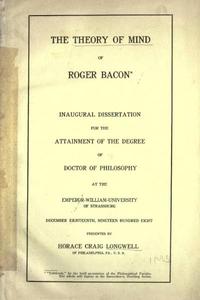Theory of Mind

Theory of mind (ToM) is the understanding of the mental states of others, including their intentions, desires, beliefs, and emotions. Around the age of eighteen months, a child is able to understand the intentions of other people. This progresses until the ages of three to four-and-a-half when children begin to understand others' states of knowledge and belief. Janet Astington, a long-time ToM researcher, has found that children's performance on standard false belief tasks was associated with their production of joint proposals and explicit role assignments during pretend play. Success at joint play may have some dependence on representing differing and conflicting beliefs and goals with the other participant in the play session. For social development, it is necessary for children to be able to communicate this information amongst themselves. With no knowledge about the mind or their playmate's beliefs, these pretend play interactions are quite difficult to execute successfully.
See also: COGNITIVE DEVELOPMENT; EMOTIONAL DEVELOPMENT
Bibliography
Astington, Janet W. "Intention in the Child's Theory of Mind." In Douglas Frye and Chris Moore eds., Children's Theories of Mind: Mental States and Social Understanding. Hillsdale, NJ: Lawrence Erlbaum, 1991.
Astington, Janet W. Child's Discovery of the Mind. Cambridge, MA:Harvard University Press, 1993.
Astington, Janet W., Paul L. Harris, and David R. Olson, eds. Developing Theories of Mind. Cambridge, Eng.: Cambridge University Press, 1990.
Frye, Douglas, and Chris Moore, eds. Children's Theories of Mind: Mental States and Social Understanding. Hillsdale, NJ: Lawrence Erlbaum, 1991.
Harris, Paul L., Carl N. Johnson, Deborah Hutton, and Giles Andrews. "Young Children's Theory of Mind and Emotion." Cognition and Emotion, 3, no. 4 (1989):379-400.
Heyes, Cecilia M. "Theory of Mind in Nonhuman Primates." Behavioral and Brain Sciences 21, no. 1 (1998):101-134.
Perner, Josef, Ted Rufman, and Susan R. Leekam. "Theory of Mind Is Contagious: You Catch It from Your Sibs." Child Development 65 (1994):1228-1238.
Sara Salkind
Additional topics
- Three Mountain Task
- Theories of Development - The Mechanistic Worldview, The Organismic Worldview, The Contextualist Worldview
- Other Free Encyclopedias